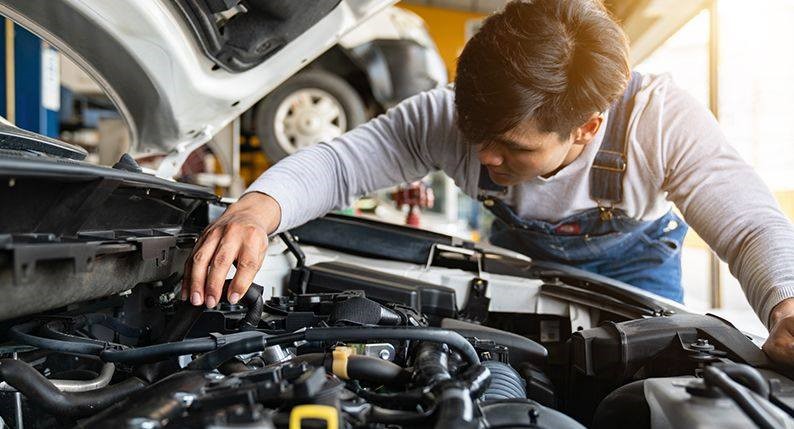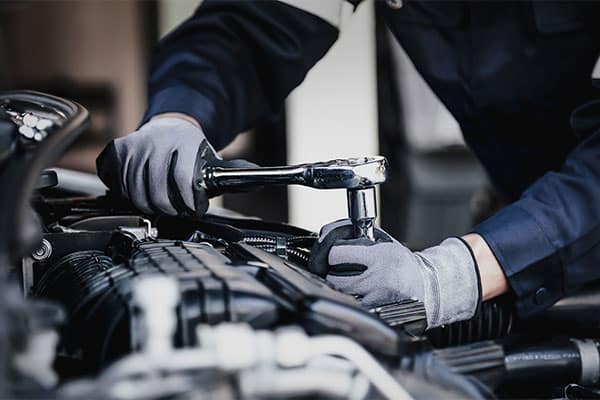All Categories
Featured

When it comes to vehicle upkeep, the brakes are probably one of the most crucial system for guaranteeing your safety. Your brakes should work ideally to prevent mishaps and respond rapidly in emergency situations. Normal brake inspections are necessary to maintaining your stopping system in top problem. Comprehending when and just how to inspect your brakes can save you from unsafe situations and pricey repair services down the roadway. Below's an overview to help you remain on top of brake examinations.
- Why Brake Evaluations Are Critical. Brakes are made to put on down gradually, yet without normal examinations, you may not observe when they end up being much less effective. A defective brake system can cause serious mishaps, increased repair work prices, and also the need to replace other vehicle components.
Brake inspections not only assist you capture possible issues before they rise, but they likewise enable far better stopping performance, increased lorry lifespan, and enhanced safety.
- Recognizing Caution Indications for Brake Troubles. While routine examinations are necessary, you do not need to wait until your car's following visit to the auto mechanic. Look for these warning indications that may indicate it's time for an assessment:
Unusual Noises: A shrill screech or grinding sound when using the brakes often signals that the brake pads are put on down or damaged. Soft or Spongy Brake Pedal: If the brake pedal feels soft or spongy when pressed, there may be air or moisture in the brake lines, or the brake fluid may be low. Pulling away: If the car draws away while stopping, it might indicate uneven brake pad wear or a hydraulic concern in the brake system. Vibration in the Wheel or Pedal: If you experience resonance or pulsation when stopping, it may signify distorted blades or uneven brake pad wear. Boosted Quiting Range: If it takes longer than usual to bring your cars and truck to a quit, it might be time to check the brake pads, liquid levels, or blades. If you see any one of these signs, it's ideal to have your brakes checked quickly by a specialist.
- Secret Components Checked During a Brake Examination. Throughout a brake examination, a certified auto mechanic will examine several vital parts of the brake system to ensure they're working properly. Several of the most fundamental parts to check include:
Brake Pads: These are the rubbing material that presses versus the brake rotor to decrease the car. In time, the brake pads wear down and require changing. Brake Rotors: Rotors are the steel discs that the brake pads secure down on. They should be smooth and totally free of deep grooves or splits. Brake Liquid: The brake liquid moves the force from the pedal to the brakes. Low liquid levels or old, contaminated liquid can cause poor stopping efficiency. Brake Lines: Brake lines bring liquid from the master cyndrical tube to the brake elements. They must be looked for leaks, cracks, or damage. Brake Calipers: These clamp the brake pads onto the blades. They ought to be in great working order and devoid of leaks. Routinely examining these elements ensures your braking system operates efficiently and helps you prevent dangerous driving circumstances.
- How Usually Should You Get Your Brakes Inspected? The regularity of brake inspections relies on your driving habits and the kind of car you possess. As a basic guideline, it's recommended to examine your brakes at least as soon as a year or every 12,000 miles. If you drive in heavy traffic, regularly carry heavy tons, or drive on hilly terrain, more constant evaluations might be needed.
It's likewise an excellent concept to have your brakes inspected if you see any one of the indication discussed previously, as this can stop more severe problems.
- The Cost of Ignoring Brake Inspections. Disregarding routine brake examinations can cause major consequences. Worn brake pads, damaged blades, or low brake fluid can cause your braking system to fail when you require it most. Along with the safety threats, overlooking brake maintenance can lead to pricey repair services in the future.
As an example, if the brake pads are not changed in time, the damage might reach the rotors, resulting in the need for rotor substitute-- an expensive repair service. By organizing normal brake assessments, you can prevent these pricey fixings and keep your stopping system in good condition for longer.

- What Takes place Throughout a Brake Evaluation? A professional mechanic will certainly carry out a thorough assessment of your vehicle's braking system, including inspecting for the complying with:
Brake Pad Thickness: Brake pads require to be changed when they have put on down to a certain density. Blades Problem: The technician will certainly inspect the rotors for signs of wear, bending, or scoring. Brake Fluid Level: Reduced brake liquid can influence stopping performance. The auto mechanic will certainly check the liquid level and replenish it if essential. Brake Line Stability: The brake lines will certainly be checked for any leakages or splits that could compromise the brake system. Once the evaluation is complete, the mechanic will certainly inform you of any kind of essential repair services or substitutes.
Conclusion: Keep Safe with Regular Brake Inspections. Your brakes are important to keeping you and your travelers safe when driving, so regular brake inspections should never ever be neglected. By taking note of caution indications, organizing routine brake checks, and attending to problems immediately, you can make certain that your brakes are always in top shape.
Don't wait up until your brakes fall short-- stay proactive concerning brake maintenance. A little financial investment in brake assessments today can conserve you from expensive repairs and unsafe circumstances in the future.
Latest Posts
Make Your Desire Fence a Truth with Montana Fencing Financing
Unwind with the very best Pleased Hour around at The other day's Tavern
Explore Endless Possibilities
